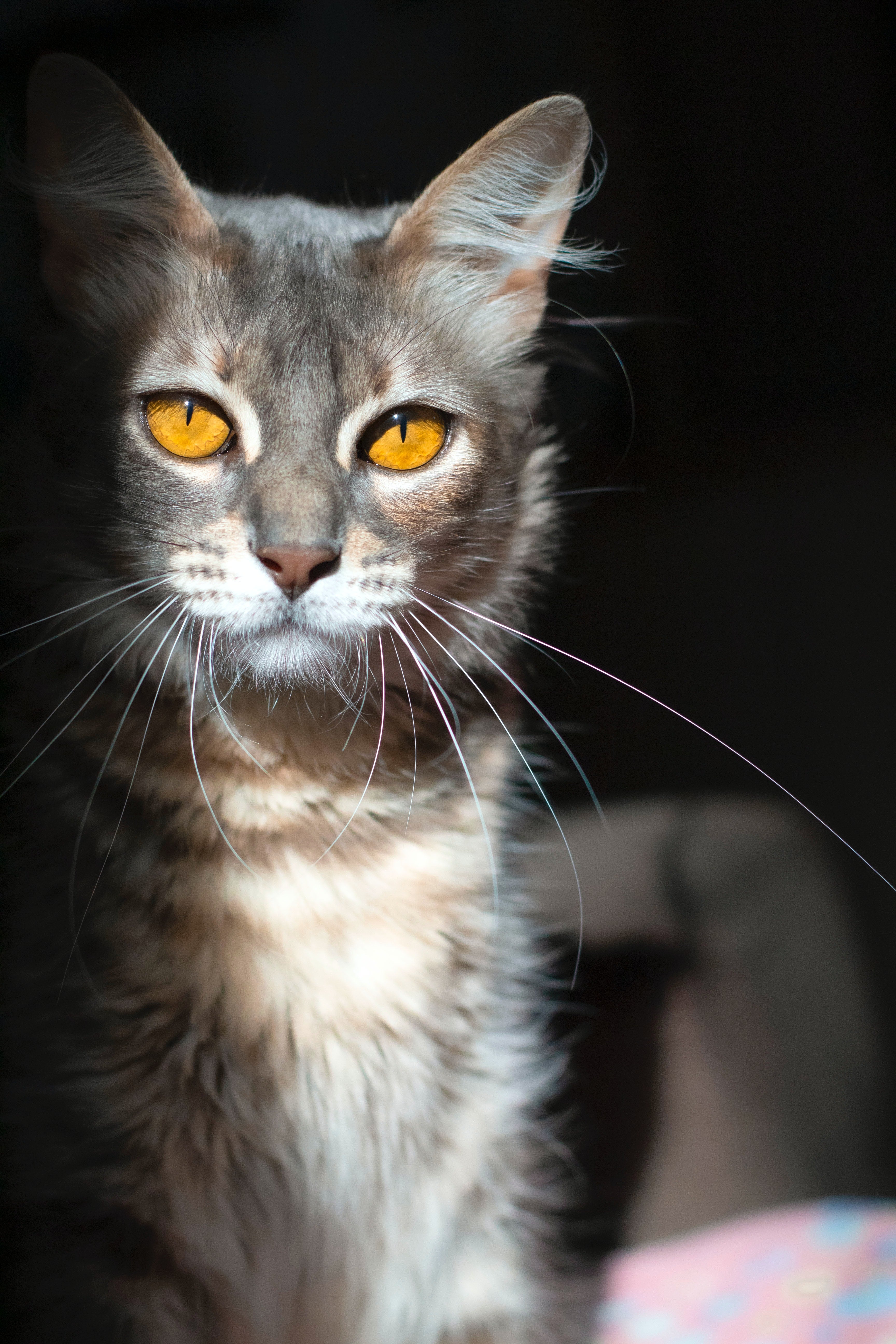
5 Ways to Lengthen Your Cat’s Lifespan
Indoor cats live 10-15 years on average, and while that’s quite a long time for a domesticated animal, we still want our felines to live the maximum lifespan possible! We often wonder if there is anything we can do to keep them healthier longer.
Much like humans, a lot of what goes into longevity for a cat is diet, exercise and regular doctor’s visits. But what, in particular, can we feed or do with our cat that will raise their chances of living past 15?
We’ve compiled a list of the top five ways you can lengthen your cat’s lifespan. Though there are many more strategies and techniques than five, these are some of the easiest ones to implement!
1. Feed High Quality Food
What we feed our cats matters, and is perhaps one of the most important parts of ensuring a long life. There are countless foods to choose from, including, dry, wet, raw and human grade. The key to determining if a food is high quality is looking at the nutrition and ingredients label. You will want to choose a cat food that has all of the necessary vitamins and minerals a cat needs. You’ll also want to buy food that lists a protein as one of its first ingredients. Cats are carnivores, and need to eat a largely meat-oriented diet. If your food checks these boxes, then you’re feeding them a diet that encourages a long life.

2. Entice Them to Drink Water
Cats are notorious water haters. They despise it. In fact, they might hate it so much that they are hesitant to drink from a water bowl. In cases like this, your vet will probably suggest that you feed them wet food. It is incredibly important that cats stay well hydrated, as it reduces their chances of developing kidney disease, a common medical condition that often leads to a shorter lifespan. If your cat won’t go near a water bowl, you might have more luck with a cat water fountain. Felines love moving water, and a water fountain makes a slight trickling sound that might provide all the encouragement they need to take a sip.
3. Take Them in For Annual Physicals
If your cat is healthy and has no reason to visit a vet, you might think you don’t need to take them in. But going to the vets at least once a year for a check up is vital to keep your cat living a long, healthy life. At these visits, the vet will run blood work and look out for any hidden medical problems. Cats are great at hiding diseases, as they had to do this in the wild to avoid looking weak to predators. The aforementioned kidney disease is one of the conditions that appears sneakily – it often produces no symptoms in its early stages. Catching things before they’re symptomatic is the best way to ensure it stays controlled. A yearly vet visit doesn’t cost much money, and is a remarkable way to add time to your cat’s life.
4. Keep Them at a Healthy Weight
As cats age, they may pack on a few extra pounds. That’s because their metabolism slows down and they might not have as much energy as they used to. But it’s vital to keep them at a healthy weight. You can do this by regularly playing with them – start with at least once a day. If they’re indoor cats, you might even want to buy them a harness and a leash, and take them on a walk around the neighborhood. Another way to reduce weight is through food. There are many high quality diet foods on the market these days. You can also limit their food portions. Though many owners like to ‘free feed’ their cat, giving them access to as much chow as they want, this isn’t a great way to maintain their weight. If given access to an abundance of food, they will likely start eating even when they don’t feel hungry.
5. Give them Regular Flea, Heartworm and Tick Treatments
Ticks carry diseases, and it’s easier to get a tick bite than you might think. This is especially true if your cat spends any time outside. Even if you take them outside on a leash and monitor them, all it takes is one brush against a blade of tall grass for a tick to pounce on your cat and settle in. Because they hide in the fur of animals, they’re hard to see, and can go undetected. If a tick is undetected for 2-3 days, then the risk of it transmitting a disease to your feline goes up exponentially. Fleas may not be as dangerous, but they can cause cat hair loss and distress. Heartworm is a parasite that affects the heart, lungs and other organs, making animals severely ill. It can even cause death. Luckily, many brands offer tick, flea and heartworm treatments in one, so there’s no need to do three individual treatments.
By following these five tips, you are well on your way to ensuring your cat has the longest life possible. Keep following these tips throughout your cat’s life, and you can count on them being around for the long haul!
Author:
Ashley Davis

